
Just a spoonful or two of baking powder in baked goods can mean the difference between light, tender baked goods and hockey pucks, so it's important to use the freshest baking powder available. Old baking powder simply won't perform its function of creating bubbles, and will only lead to disappointing results. Store baking powder properly and replace it at least once each year.
A Starring Role
Baking powder contains baking soda, cornstarch and an acid, such as cream of tartar or aluminum sulfate. When baking powder combines with a liquid, a chemical reaction causes carbon dioxide bubbles to form. When a batter containing baking powder is placed in the oven, a second reaction causes more bubbles. These bubbles leaven baked goods, creating a light and fluffy product. If you use baking powder that's expired, the bubbles won't form and you'll end up with a flat, dense, crumbly cake or loaf.
Read the Package
Baking powder has a limited shelf life. Pay attention to the expiration or manufacturing date, usually listed on the bottom of the can. Unopened baking powder remains effective for 24 months after it is manufactured. Once opened, however, baking powder begins to lose effectiveness after just three to six months. Buy the freshest baking powder you can find, and store it in a cool, dry place. Buy baking powder in small cans so you can use it quickly. Toss out any baking powder that's been in your pantry for more than a year. Toss out baking powder that contains lumps, as well. The lumps signal that the baking powder has moisture in it, which means that some of the bubbling action has probably already occurred.
Test the Waters
Paying attention to the expiration date on a can of baking powder can help you avoid disappointment, but sometimes baking powder can lose its effectiveness even before the expiration date has arrived. When in doubt, test baking powder. Stir a bit of it into water. The water should immediately begin to bubble gently. If you see no bubbles, chances are, it's time to buy a new can.
Switch It Up
When all you have is expired baking powder, make your own or substitute baking soda. To substitute baking soda, add 1/4 teaspoon baking soda for each cup of flour. Be sure to add an acidic ingredient, such as buttermilk, fruit juice or brown sugar, to activate the baking soda. To make homemade baking powder, combine cornstarch, baking soda and cream of tartar. Homemade baking powder -- unlike commercial types -- is not double-acting. Put the baked good in the oven immediately so it leavens properly.
Related Articles

How to Make Your Own Cocoa Scrub

How to Check if Cream of Tartar Is ...

Does Cream-Based Frosting Have to Be ...
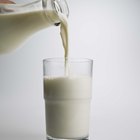
How to Dissolve Non-Instant Milk Powder

Does Baking Soda Need to Be ...

Can Beet Juice Sit Out Overnight?
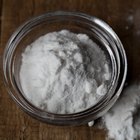
Substitution for Double-Action Baking ...
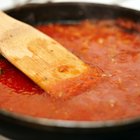
Can I Use Baking Powder to Thicken ...
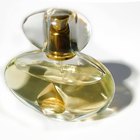
How to Buy Perfume Testers

Roshco Silicone Bakeware Instructions
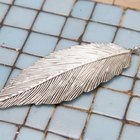
How to Make Homemade Silver Jewelry ...

Does Cream of Tartar Contain Dairy?

Ingredients to Counteract the Bitter ...

What Is the Highest Temperature That ...

Facts About How Baking Powder Might ...
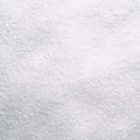
The Disadvantages of Saccharin

Does Flour Spoil?
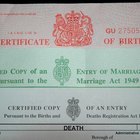
How to Get a Certified Copy of Your ...

How Long Is Hand Lotion Good For?

How to Keep Baking Powder From Getting ...
References
Writer Bio
Julie Christensen is a food writer, caterer, and mom-chef. She's the creator of MarmaladeMom.org, dedicated to family fun and delicious food, and released a book titled "More Than Pot Roast: Fast, Fresh Slow Cooker Recipes."
Photo Credits
Christopher Robbins/Photodisc/Getty Images